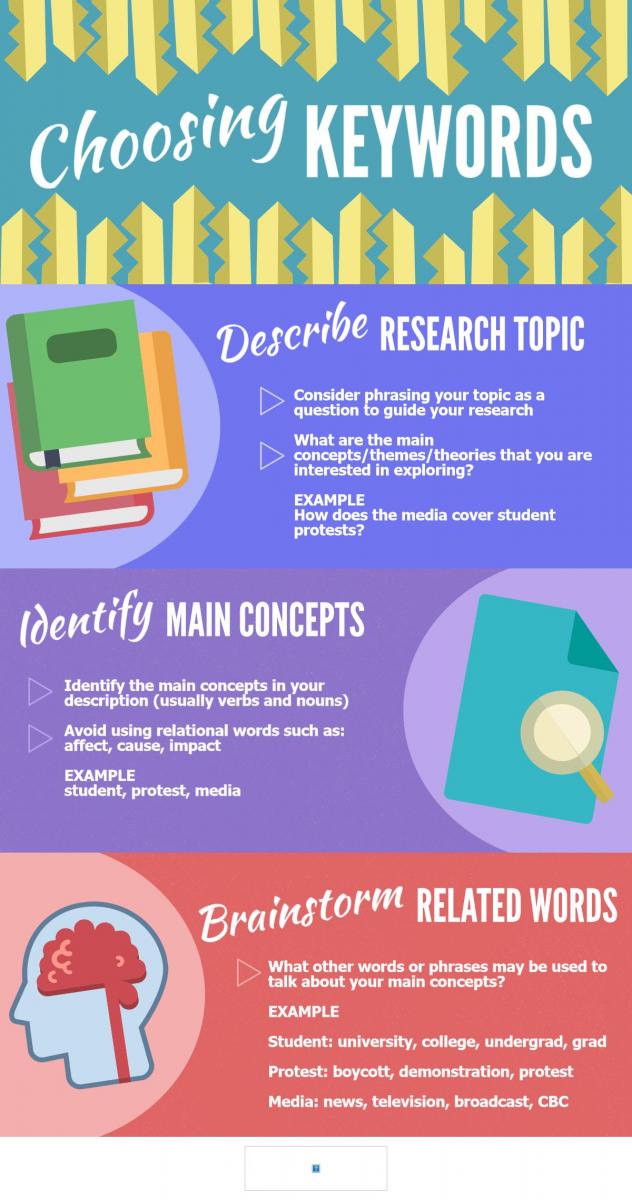Now that you have a research question, you can begin identifying the terms you'll use to find information in web searches and library search tools.
Let's start with the research question from our case study in the previous section. We'll underline the most important nouns in the question.
How are California high schools using restorative justice to address inequalities and help students of color to be successful in school?
Start making a list of search terms, beginning with the words you have underlined:
- California high schools
- restorative justice
- inequalities
- students of color
This video from McMaster University Libraries suggests some more helpful tips for choosing search terms:
- brainstorm search terms before you actually start searching
- use concepts (nouns), not the relationships between concepts (verbs)
- limit the number of search terms that you use at any one time
Don't worry if you think of more than 2-4 search terms. You can rotate among your terms.
Keep a running list of search terms. You'll add to the list as you do more research and your understanding of your research question - and the information you need to address it - changes.

